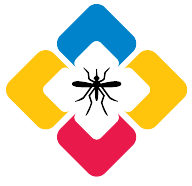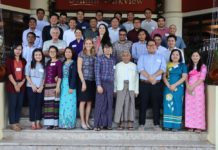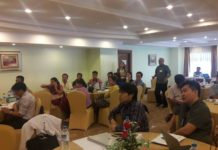Myanmar Community Consultation in preparation of RAI3 Funding Request was held in Yangon, Myanmar on 24 January 2020 together with regional malaria CSO platform, GMS and country CSO partners, including country steering members; Save the children international, Population Services International and University Research Co., LLC. Country Coordinating Mechanisms (CCM), Myanmar RAI and non-RAI CSO partners, The Global Fund representative, RAI RSC secretariat, Regional and Thailand consultants for RAI3 Funding request, UNOPS PR, World Health Organization, RAI RSC CSO representative, Alternate RAI RSC CSO representative, CSO platform secretariat, Integrated community malaria volunteers, and private outlets joined and discussed in the community consultation. The main objectives and expected outcomes of the consultation include:
Main objectives
- To explore and produce the high-level country priority for the regional component
- To collect suggestions from Civil Society Organizations (CSO) and community representatives to provide the CSO consolidated feedback to the Global Fund RAI3E funding request development
Expected outcome
- To produce CSO feedback for prioritized activities in NSP and Concept Note for RAI3E Myanmar Country Component
- To produce CSO feedback for priority for the Regional Component packages that are relevant to CSOs
National Malaria Control Program manager Dr. Aung Thi delivered the welcome remark and gave a brief epidemiological overview. Community and malaria project implementing CSO recommended the following priorities to be included in the RAI3E grant.
The Priorities were presented at the Myanmar malaria dialogue on 24 January 2020 as follows:
- Maintain and improve the scope and coverage of integrated community malaria volunteers’ package and private sector.
- Intensify case detection and prevention activities in the hot spots and high transmission geography and populations.
- Optimize case management services delivery and uptake for vivax.
- CSOs involvement in single package intervention for elimination surveillance activities in their coverage communities.
- Ensure universal coverage of preventative tools for affected populations, including forest goers with LLINs.
- Expand Malaria Case-Based Reporting and Surveillance application (MCBRS), and in a setting where MCBRS is not yet feasible, continue the collection of paper-based reporting.
- Quality volunteer supervision activities.
- Regular meetings and capacity building of volunteers and staff, including cross-border.
- CSOs’ contribution to outbreak response





